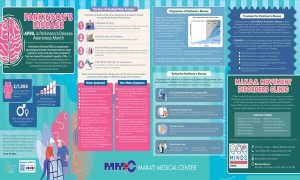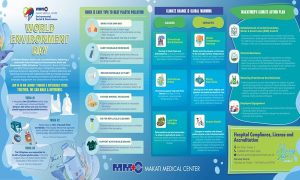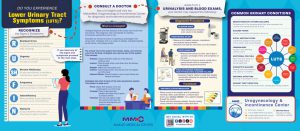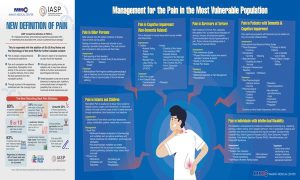Ever had that too-full feeling in your belly? If you easily pictured the scenario, don’t worry—belly-bloating occurs to most people at some point in their lives. While it’s often confused for a prominent tummy formed by extra pounds, shedding some weight may not address the root cause.
Generally referred to as stomach or belly bloating, this condition is likely caused by intestinal gas or an upset digestive system. It is characterized by a tight, hard, or painful feeling along with the bloating of the midsection, as well as frequent burping, flatulence and abdominal rumbling or gurgles.
This excessive gas and pain can get in the way of daily living by keeping you in a state of discomfort. Luckily, belly-bloating can be managed through a series of dietary and lifestyle changes. Here are a few ways you can beat the belly bloat and perhaps skip a visit to the gastroenterology and endoscopy unit:
1. Take your time eating
Eating faster means swallowing more air, leading to a build-up of gas that causes bloating. Eat your meals for at least 30 minutes, given that it can take 20 minutes for your stomach to signal fullness to your brain.
Additionally, proper digestion starts in the mouth through proper chewing. Properly chewing your food ensures that you swallow less air, helps you pace your meal, and reduces the amount of food you eat.
2. Eat small and frequent meals
You may be used to eating three square meals a day, but this may be aggravating the bloated feeling you get after meals. Changing to 5 to 6 smaller meals spread throughout the day can improve your symptoms of bloating and even help manage blood sugar and hunger. Just make sure that the amount of food and calories per meal is proportionate to your body’s needs.
3. Make it a habit to move bowels regularly
Too little fiber and fluids, and lack of exercise can cause constipation, which contributes to bloating. Make sure to increase your fiber intake in your diet through whole grains, fruits, vegetables, legumes, nuts, and seeds. Also, aim to drink 6 to 8 glasses of water a day and do light exercises for at least 30 minutes, five times a week to increase the blood flow in the digestive tract and help aid digestion.
If your current diet restricts your fiber intake, gradually increase the fiber level and drink plenty of water to help with tolerance. Bear in mind that even on a healthy diet, too much fiber and increasing fiber intake too quickly can cause more gas and bloating.
4. Limit salt intake
Excessive sodium intake can cause the body to retain water. Aside from creating bloating and swelling in the stomach, it can affect other areas such as joints, hands, and feet. If left unchecked, this can cause long-term health problems like high blood pressure.
Get into the habit of checking food labels for sodium content. Ideally, each product should have no more than 500mg of sodium per serving, with a total of 1500 to 2300mg of sodium a day. Consider picking “low sodium” or “no sodium” products over your usual food choices.
5. Avoid “gassy” foods
While beans and whole wheat are excellent sources of fiber, they contain a substance called raffinose that the digestive system needs to break down. This can create gas and lead to bloating. Other food that contains raffinose include broccoli, cabbage, cauliflower, and Brussel sprouts.
The key to consuming these otherwise nutritious vegetables and beans without feeling the bloat is to gradually add them to your diet and let your body adjust to it. If you are currently experiencing bloating, it’s best to avoid them until it subsides.
6. Lessen your carbs
Simple carbohydrates like white bread and pastries are digested by the body faster than protein or fat. Once the body has used up a certain amount of carbs for energy, it stores the rest as glycogen, which can make your body retain water. Excessive amounts of carbohydrates (which would then turn to glycogen) increase fat storage hormone called insulin. These can both contribute to the bloated feeling.
It’s advisable to favor more “complex” carbohydrates like whole grains and vegetables that your body will take longer to digest.
7. Take probiotics
Probiotics, or “good bacteria,” can help with repopulating your stomach’s healthy bacteria and reduce gas production and bloating. Food like kefir and yogurt, peppermint tea, ginger, pineapple, and parsley are rich in probiotics and can be incorporated into your daily diet.
8. Cut out sodas and gum
Carbonated drinks, including soda and sparkling beverages, contain gas that builds up in the stomach. Meanwhile, chewing gum can increase the amount of air you swallow. Both can lead to excessive gas pain and bloating.
If you are experiencing belly bloating, opt for juices or other fizz-free drinks, and consider breath mints instead of mint gum for freshening your breath.
9. Watch out for sugar-free foods
Artificially-sweetened food and chewing gums contain sugar alcohols that, while safe alternatives to sugar, can contribute to further bloating. This is due to the way the bacteria in your large intestine digests it, producing gas in the process.
Avoid food and candy with sugar alcohols like xylitol, sorbitol, and mannitol. While the sugar alcohol erythritol may have fewer effects on the digestive system, it can still cause issues in larger doses. It’s recommended to consume no more than 2 to 3 servings of artificially-sweetened food and drink per day.
10. Rule out any allergies or chronic illnesses
Experiencing bloating once in a while can be managed with the right lifestyle and diet choices. However, bloating can also be caused by food allergies and sensitivities, as well as more serious gastrointestinal conditions like irritable bowel syndrome or IBS, Crohn’s disease, and inflammatory bowel disease.
Ruling out these possibilities is crucial to avoid bloating. Keeping a food diary and being aware of your family’s medical history can help with getting a more accurate diagnosis from your doctor.
Key Takeaway
If you consistently and frequently experience belly bloating, or worse symptoms accompany the condition, you need to see a medical professional. Also, keep in mind that bloating can also happen to babies. In case of digestive issues, Makati Medical Center’s gastroenterology services to address your health needs.









